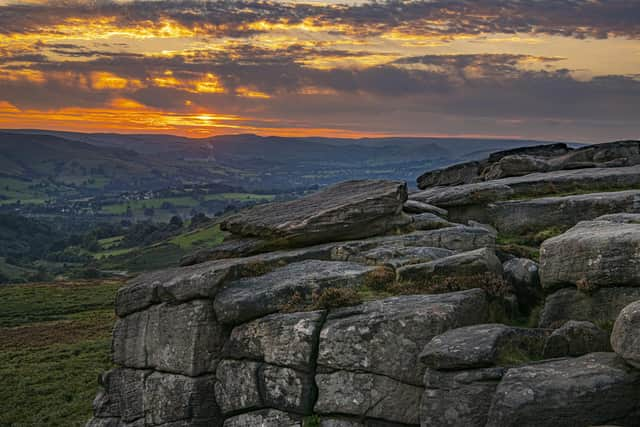Peak District farmers taking control of finances amid government payment cuts and confusion
Peakland Environmental Farmers (PEF) has 53 farmers on board, covering more than 26,000 hectares of upland in the Peak District National Park.
The collective intends to enable farmers and landowners to protect and enhance the natural environment in the Peak District, and offset losses from the withdrawal of existing farming support schemes. It will do this by seeking investment from public and private partnerships, combining ELMS (the new agri-environment scheme for farmers) agreements with environmental offset trades and other sources of green finance.
Advertisement
Hide AdAdvertisement
Hide AdConservation work undertaken by the members includes hedgerow planting, protection of water courses, conservation of species-rich habitats, enhancing soil health, sustainable game management, creation of wildlife ponds, peatland restoration and rewetting and reducing the impact of invasive species such as bracken.


James Howard, of Lane Farm in the village of Holme, can trace his family back through 16 generations farming a mixed upland landholding, with native breeds of sheep and cattle. He said: “We are proud of the way we produce food sustainably while protecting the natural environment.
"Joining forces offers an opportunity to make people aware of the benefits of environmentally-focused farming and to deliver these outcomes across a larger area. The Peak District is celebrated for its natural beauty but many people don’t realise that our approach to farming has played a major part in protecting and enhancing this landscape.
“Going forward we also have a role to play in ensuring that schemes devised by policymakers are workable and will achieve their objectives – farmers have the experience to know what works in any particular landscape so we can make an enormous contribution to the benefits we all want to see.”
Advertisement
Hide AdAdvertisement
Hide AdAll farmers face the loss of the Basic Payment Scheme (BPS), which will reduce to 50 per cent by 2024 and to zero by 2027.


It is estimated that as a result, the farming/land management economy in the PEF area alone (not the whole Peak District) will lose £20m per annum.
The PEF has been convened with the help of the Game & Wildlife Conservation Trust and is supported by the Moorland Association and NFU.
Amanda Anderson, director of the Moorland Association, said: “Many upland landowners are already managing the land in a way that benefits all of society, as identified by government, but they haven’t necessarily catalogued everything they do to look after the land and its wildlife.
Advertisement
Hide AdAdvertisement
Hide Ad“Ministers recognize that the uplands have unique and abundant wildlife that needs to be protected as well as enhanced. There are sustainable populations of birds in many areas of the Peak District, such as curlew, lapwing and golden plover, which are in serious decline elsewhere.
“Working together across this huge area of land, we can establish a baseline of the species that are doing well and work jointly on steps that will further protect many of our most-loved rare species.”
The idea to create PEF started at the Peak District Upland workshop in May last year and chaired by Rt Hon Lord Benyon, the Defra minister responsible for protected landscapes.
It is modelled on the Environmental Farmers Group set up in the Avon catchment in Hampshire and Wiltshire. That group started to work together in May 2021 and launched as a co-operative on 3 May 2022
